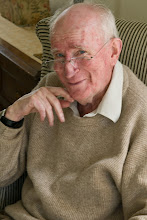I've just retreated upstairs to my computer because I couldn't bear to watch another minute of Mike Hosking on "Who Wants to Be a Millionaire?"
When we turned it on, a nice-looking woman in blue was in the chair. Here's how Hosking introduced her: "A former beauty queen and 61-year-old grandmother!" Well, that put her in her place. Never mind everything she'd done in between, let alone what her job was (and she did have one, she said she did). It's as if Hosking had introduced John Key as "a former state house kid and father of two".
Come to think of it, that seems to be exactly how Key and his spin-doctors are trying to present him. By the time he came back to New Zealand in 2002 to be installed as National's candidate for Helensville, he was worth more than $50 million.
In his 2002 maiden speech, he spoke of his widowed mother, his humble start, and his desire to give every citizen the opportunity to reach greater heights. But the Sunday Star Times outed him as championing a tougher line on welfare inside the party itself. If he made it, so could everyone else.
Then in 2004, he put down Kiwibank customers as "the poorest, most unprofitable, worst accounts". That was exactly the line Fay Richwhite had used to argue for privatising Postbank and selling off Housing Corp mortgages.
Not worth bothering with, those people. Paying in their pathetic little benefits and wages and then spending almost all of it by the time the next payday came around. Wanting cheap housing loans. Complaining about high bank fees. Whining when branches are closed and they're told to just go and use the internet instead. No profit there.
The fact that these days everyone HAS to have a bank account in order to function was of no interest whatsoever to those guys. As the repulsive wedding venue manager says in Second Hand Wedding, "YP, not MP - your problem, not my problem."
But by 2006, when Key made his first speech as National leader, he'd had a makeover. Once again he played up his upbringing and said there would always be a social welfare system to help the vulnerable.
Exactly how does Kay define who is vulnerable, and what level of support they're entitled to, under what conditions? Despite his much-vaunted sojourn in a state house, he must have enormous difficulty imagining what life is like for ordinary people who don't have even one million to rub together and struggle to afford the most basic home, let alone three multi-million dollar mansions.
For an excellent account of low-wage life, see Metro's story of the incredibly well-organised, hard-working parents Losena ($515 in the hand after 17 years) and Kilifi ($461 in the hand after 13 years). So far they've managed, and Working for Families was a big help. But one slip - job loss, accident, extended illness - and it would all fall apart.
Judging by what's happening at the foodbanks, it's already pretty dire out there now, and getting direr by the day. Welfare benefits increased by 3.2 percent in April, because that's what overall consumer prices rose by in the year to last December. But these delayed increases completely fail to keep up with the actual costs of basic necessities. Food went up by 7 percent in the year to June, and petrol went up by 34 percent. Power prices are jumping again - Contact has just raised them by 10-12 percent.
Key's solution is always the same mantra: economic growth and higher wages for all, plus of course lower taxes and stricter welfare rules. Exactly how this will help the Losenas and Kilifis of the real world out there behind the money markets where Key made his millions is never made clear.
Subscribe to:
Post Comments (Atom)





No comments:
Post a Comment